TO LEARN IS TO GROW
Learning Center
We do our research and publish our results. Should probably call this the Growing Center.

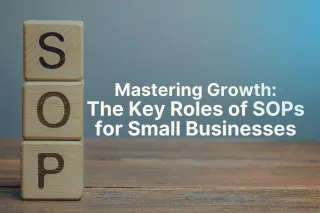
Mastering Growth: The Key Roles of SOPs for Small Businesses
Why Standard Operating Procedures are crucial for small businesses. Learn about the long-term benefits of establishing SOPs for growth and scalability. ...more
Marketing ,Business Development
July 24, 2024•8 min read
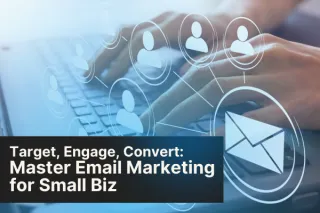
Target, Engage, Convert: Master Email Marketing for Small Biz
Get results with email: reach new customers and drive sales. Discover proven strategies and watch your business grow with targeted email campaigns. ...more
Marketing
June 26, 2024•10 min read
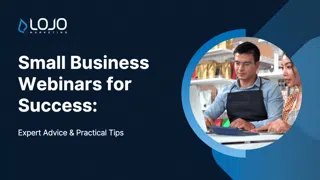
Small Business Webinars for Success: Expert Advice & Practical Tips
Access our FREE Small Business Webinars for valuable insights, practical tips, expert advice, and demos on marketing, sales, and productivity tools. ...more
Marketing
June 09, 2024•3 min read
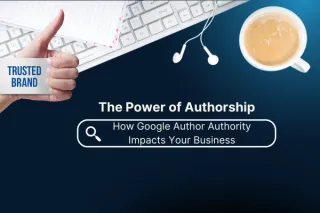
The Power of Authorship: How Google Author Authority Impacts Your Business
Learn about the impact of Google author authority on your website's ranking and the benefits of having reputable authors create content for your website. ...more
Marketing ,Branding
May 20, 2024•7 min read

A Guide To Maximizing Business Potential With Meta AI
Explore the capabilities of Meta AI, a cutting-edge and friendly AI assistant, and how it can help businesses improve productivity and drive growth. ...more
Marketing ,Social Media &News
May 07, 2024•6 min read
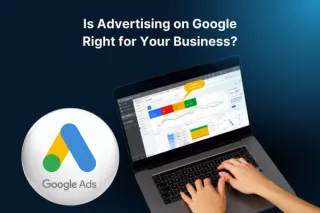
Is Advertising on Google Right for Your Business?
Learn how to determine if Google Ads is a good investment for your business. Calculate ROAS & ROI by estimating client value, close rate, and profit margin. ...more
Marketing
April 30, 2024•13 min read
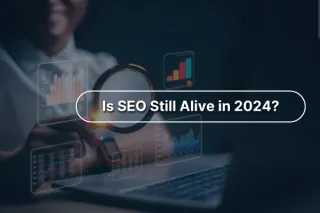
Is SEO Still Alive in 2024? Myths & Opportunities for Businesses
We discuss SEO's relevance, including some key trends. Discover how you can adapt your strategies to stand out in the digital realm. ...more
Marketing ,Business Development
April 22, 2024•9 min read
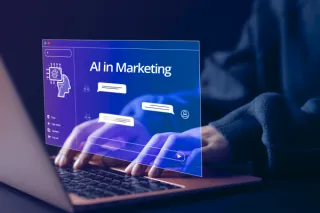
How Implementing AI in Marketing Can Benefit Your Business
A must-read for business owners to learn about the benefits, applications, and implementation of AI in marketing for business growth. ...more
Marketing ,Business Development
April 04, 2024•6 min read

Why Refreshing Your Brand Is Important for Business Growth
Learn why refreshing your brand and marketing strategies is key to growing your business and standing out in a crowded market. ...more
Marketing ,Business Development
March 27, 2024•5 min read

Mastering Growth: The Key Roles of SOPs for Small Businesses
Why Standard Operating Procedures are crucial for small businesses. Learn about the long-term benefits of establishing SOPs for growth and scalability. ...more
Marketing ,Business Development
July 24, 2024•8 min read

Target, Engage, Convert: Master Email Marketing for Small Biz
Get results with email: reach new customers and drive sales. Discover proven strategies and watch your business grow with targeted email campaigns. ...more
Marketing
June 26, 2024•10 min read

Small Business Webinars for Success: Expert Advice & Practical Tips
Access our FREE Small Business Webinars for valuable insights, practical tips, expert advice, and demos on marketing, sales, and productivity tools. ...more
Marketing
June 09, 2024•3 min read

The Power of Authorship: How Google Author Authority Impacts Your Business
Learn about the impact of Google author authority on your website's ranking and the benefits of having reputable authors create content for your website. ...more
Marketing ,Branding
May 20, 2024•7 min read

A Guide To Maximizing Business Potential With Meta AI
Explore the capabilities of Meta AI, a cutting-edge and friendly AI assistant, and how it can help businesses improve productivity and drive growth. ...more
Marketing ,Social Media &News
May 07, 2024•6 min read

Is Advertising on Google Right for Your Business?
Learn how to determine if Google Ads is a good investment for your business. Calculate ROAS & ROI by estimating client value, close rate, and profit margin. ...more
Marketing
April 30, 2024•13 min read

Is SEO Still Alive in 2024? Myths & Opportunities for Businesses
We discuss SEO's relevance, including some key trends. Discover how you can adapt your strategies to stand out in the digital realm. ...more
Marketing ,Business Development
April 22, 2024•9 min read

How Implementing AI in Marketing Can Benefit Your Business
A must-read for business owners to learn about the benefits, applications, and implementation of AI in marketing for business growth. ...more
Marketing ,Business Development
April 04, 2024•6 min read

Why Refreshing Your Brand Is Important for Business Growth
Learn why refreshing your brand and marketing strategies is key to growing your business and standing out in a crowded market. ...more
Marketing ,Business Development
March 27, 2024•5 min read
Growing Businesses Since 2008
We have helped hundreds of businesses just like yours. Working for or along-side of business owner, managers, staff, or even board of directors, LOJO is ready to be an asset to your business.
Our team has been curated through the years for individual skills, personalities, and capabilities. Our clients put their trust in us to help them grow. We are here to do just that.
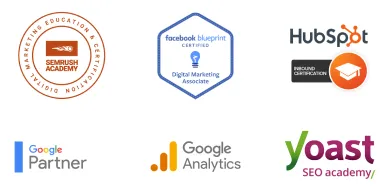


Growing Businesses Since 2008
We have helped hundreds of businesses just like yours. Working for or along-side of business owner, managers, staff, or even board of directors, LOJO is ready to be an asset to your business.
Our team has been curated through the years for individual skills, personalities, and capabilities. Our clients put their trust in us to help them grow. We are here to do just that.




Matthew Rogers, President
iProspect Check
After spending several months reviewing multiple proposals from several different companies we engaged LOJO to develop a new website that represents our company effectively. We worked initially with Stephen Platte who helped create the scope of the project. Stephen was knowledgeable and always followed up with me on time and as promised.
He "closed the deal" for LOJO with his professionalism, service orientation and easy going approach. Once we signed the contract we were introduced to Jay Kelly who would be the creative lead for LOJO. This was the most challenging part of the project for my company, as there was no shortage of ideas from our side. Jay managed the project flawlessly, and once we had all agreed to the design, Jay introduced us to Eric.
Eric Lay is one of the founders of LOJO. Eric took the design we had developed and brought it to life. We delivered content as quickly as he requested it. Eric kept the project on task and we responded by exceeding every deadline for content. In turn, once provided, literally not a day went by that Eric didn't add the content and take the next step. In just a few weeks we launched our new website. Eric is a pleasure to work with.
His positive attitude and consultative approach really enhanced the experience and made a big difference for us in the outcome of our project. We would welcome you to visit our website to take a look at the quality work of LOJO. We are very pleased with LOJO and look forward to working with them in the future as we pursue an aggressive SEO strategy."
After spending several months reviewing multiple proposals from several different companies we engaged LOJO to develop a new website that represents our company effectively. We worked initially with Stephen Platte who helped create the scope of the project. Stephen was knowledgeable and always followed up with me on time and as promised.
He "closed the deal" for LOJO with his professionalism, service orientation and easy going approach. Once we signed the contract we were introduced to Jay Kelly who would be the creative lead for LOJO. This was the most challenging part of the project for my company, as there was no shortage of ideas from our side. Jay managed the project flawlessly, and once we had all agreed to the design, Jay introduced us to Eric.
Eric Lay is one of the founders of LOJO. Eric took the design we had developed and brought it to life. We delivered content as quickly as he requested it. Eric kept the project on task and we responded by exceeding every deadline for content. In turn, once provided, literally not a day went by that Eric didn't add the content and take the next step. In just a few weeks we launched our new website. Eric is a pleasure to work with.
His positive attitude and consultative approach really enhanced the experience and made a big difference for us in the outcome of our project. We would welcome you to visit our website to take a look at the quality work of LOJO. We are very pleased with LOJO and look forward to working with them in the future as we pursue an aggressive SEO strategy."

Matthew Rogers, President
iProspect Check
The team at LOJO were wonderful to work with. They are well organized and very patient as we worked through our marketing strategy and developed a well thought out and clear action plan at a reasonable price. We will definitely be back for our future campaign needs."

Jon Crosby, Founder
Dazil
